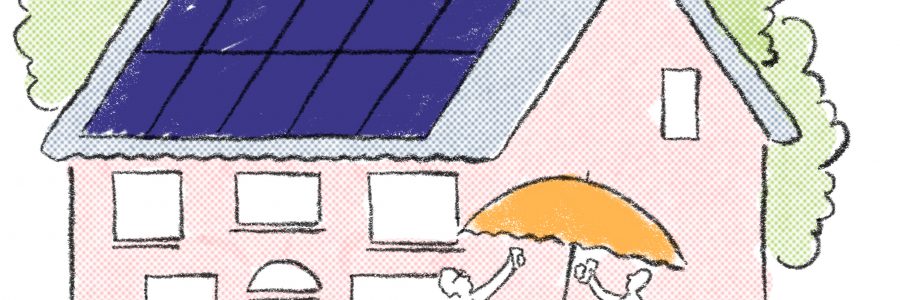With summer temperatures rising, here are some practical ways to stay cool and manage your energy use effectively.
Cooling Appliances and What They May Cost
- Fans (desktop, tower, pedestal): Cost between £0.15–£0.31 per day. They help cool you by moving air across your skin. USB desk fans are a low-cost option.
- Evaporative Air Coolers: Cost around £0.28–£0.40 per day. These use water to cool the air and are more efficient than air conditioning units.
- Portable Air Conditioning Units: Significantly more expensive at £4.84–£6 per day and produce higher carbon emissions. To maximise effectiveness, keep doors closed and unplug when not in use.
Top Tip – More expensive tower, desktop and pedestal fans aren’t always more energy efficient or cheaper to run than lower-cost models. Bladeless fans, which are usually the priciest, tend to have similar running costs to standard designs.
Figures from Energy Saving Trust
Home Improvements That Can Help
Insulation
Insulation helps keep your home comfortable throughout the year by trapping heat inside during winter and keeping it out during summer. Loft, wall and floor insulation can make a noticeable difference to energy efficiency and heating costs.
In the UK, the recommended minimum thickness for loft insulation is 270 mm when using mineral wool or similar materials. For rigid foam insulation in walls or floors, typical thickness ranges from 100 to 150 mm depending on the material and the level of thermal performance needed.
Solar Film
Adding solar control film to your windows can help reduce the amount of heat caused by sunlight passing through the glass. Costs will vary depending on the type of film you choose and the size and number of windows you want to cover.
If you decide not to treat all your windows, prioritise those that receive the most sunlight. These are usually south-facing windows or those in rooms that tend to get the warmest.
Free Ways to Stay Cool
Cross Ventilation
Encourage airflow by opening windows or vents on opposite sides of your home. This draws cooler air in and pushes warm air out. For best results, open windows in the early morning or late evening, keep internal doors open, and use a fan near a window to help direct airflow. This free, energy-saving method also improves indoor air quality, helping reduce damp and mould.
Close Blinds and Curtains
Keep blinds and curtains closed during the hottest parts of the day, especially when the sun is shining directly through the windows. This helps block out solar heat and prevents indoor temperatures from rising. Light-coloured or reflective linings can enhance this effect by bouncing sunlight away from your home. For rooms that get particularly warm, consider using thermal or blackout curtains to further reduce heat gain.
If you have any concerns or questions get in touch here.



